|
8
- 12 MILLION TONS
PER YEAR
PLEASE
USE OUR A-Z INDEX
TO NAVIGATE THIS SITE, OR CLEAN SWEEP HOME
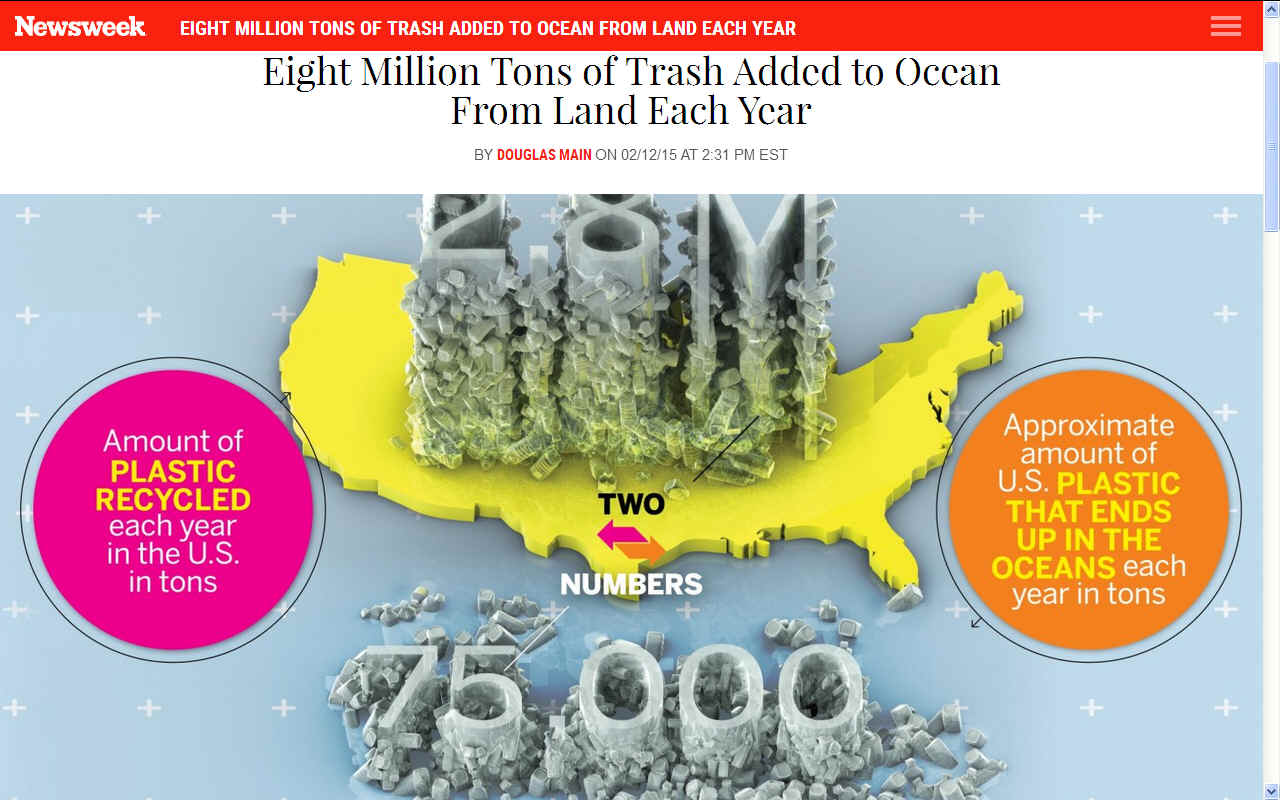
A
staggering 8-12 million tons of plastic is being flushed into
the oceans every year. This is expected to rise significantly
over the next decade unless we take immediate action. But the G20
and United
Nations have no plans for direct action. Why?
"The
ocean is a free dumping ground - it's a waste disposal free
lunch"
Of
the 8-12 millions tons, international cleaning efforts could
scoop up around 10.5%, leaving 89.5% free to poison marine
life and eventually pollute the ocean floor. This figure is
only an approximation. But it shows us two things:
1.
That it is possible to make a significant difference if we
try.
2.
That we need to consider using more technology to get us out
of this mess.
Of
the 10.5%, 8.33% is mechanically collected (planned drifting
scoop operations) with 2.17% hand picked from beaches.
Machines are by far the most promising options for mass ocean
cleaning.
With
the increase forecast, we need to scale down plastic use on
land to only that we need to maintain society sustainably.
Even with bans on single use plastic, we will not be able to
stem the plastic tide.
We
could ban plastic altogether, if not for the fact that modern
humans need plastic for medical appliances, computers and
cheaper cars. That is not it of course.
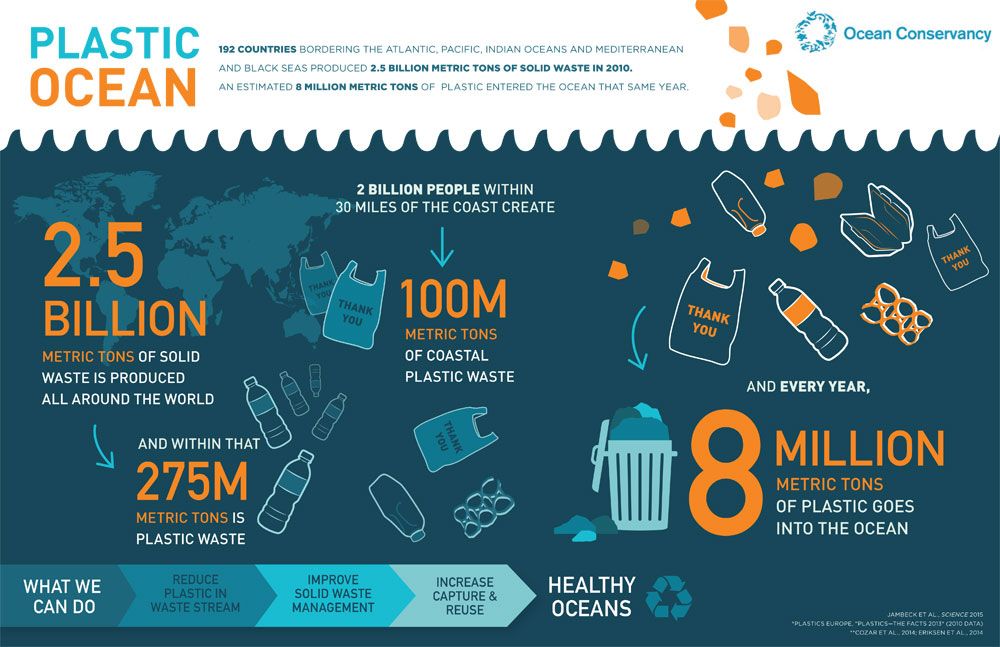
NATIONAL
GEOGRAPHIC FEBRUARY 2015
Scientists have come up with a new way to measure ocean
trash - and the numbers are even worse than thought.
In 2010, eight million tons of plastic trash ended up in the ocean from coastal
countries - far more than the total that has been measured floating on the surface in the ocean's "garbage patches."
That's the bad news. The even worse news is that the tonnage is on target to increase tenfold in the next decade unless the world finds a way to improve how garbage is collected and managed.
The findings are part of a groundbreaking study published Thursday in Science that for the first time quantifies how much garbage flows into the world's oceans every year.
Until now, most efforts to measure ocean debris have involved sample counts of plastic floating on the surface in large garbage patches in each of the world's oceans. A study last year, for example, estimated the amount of floating trash to be 245,000 tons at most.
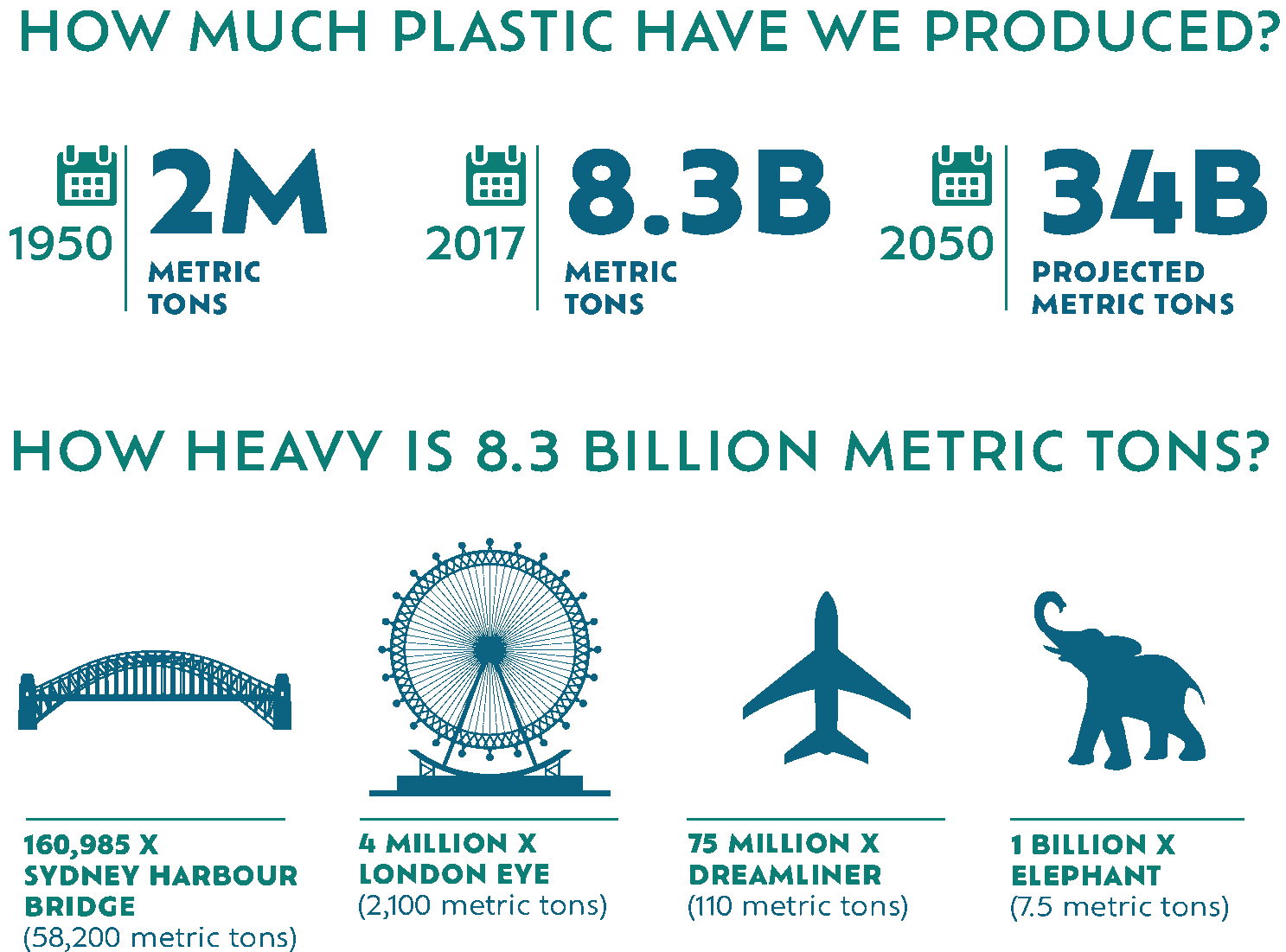
TOP
TEN Worst Offenders
The new study also identifies the major sources of plastic debris and names the top 20 countries generating the greatest amount of ocean-bound trash.
China is first. The
United States is 20th. The rest of the list includes 11 other Asian countries, Turkey, five African countries, and
Brazil.
Even though the United States has a highly developed garbage collection system, it nevertheless made the top 20 for two reasons: It has a large, dense coastal population and, as a wealthy nation, is a large consumer of products. (See video: "Are You Eating Plastic for Dinner?")
"What we have done is look at the other side of the equation -
what's coming out of the faucet, rather than what's already in the bathtub," says Kara Lavender Law, an oceanographer at the Sea Education Association in Woods Hole, Massachusetts, and a co-author of the report.
"The size of the discrepancy is huge - 20 to 2,000 times more than the range of estimates of floating debris. That is pretty shocking, especially when you consider that the amount going into the ocean in a single year and what we're counting in the oceans has been going in for 50 years."
To make the figure eight million tons comprehensible, Jenna Jambeck, the University of Georgia environmental engineer who led the study, likens it to lining up five grocery bags of trash on every foot of coastline around the globe.
"And by 2025, those five grocery bags of plastic are going to be ten bags," she says.
That would be 155 million tons a year if present garbage management practices remain the same.
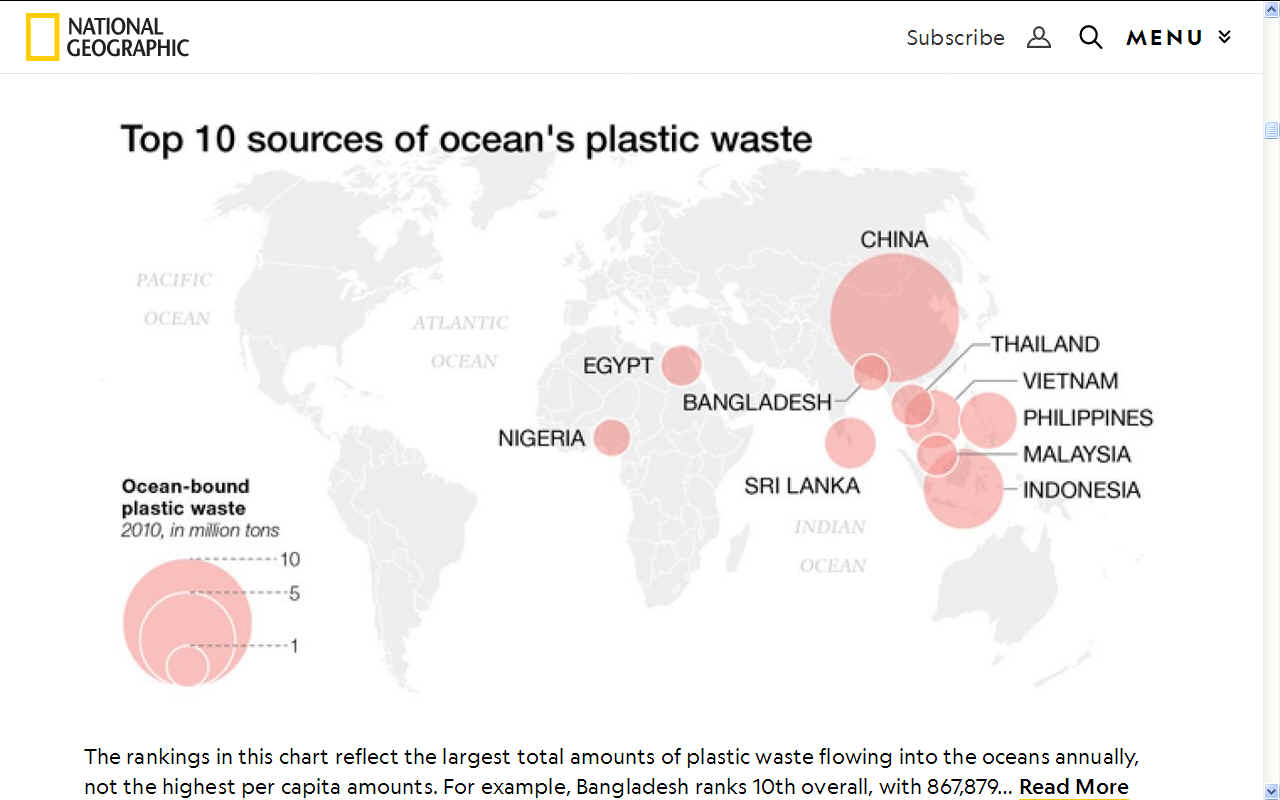
TOP
TEN
- 1.
China 2. Indonesia 3. Philippines 4. Vietnam 5. Sri Lanka 6.
Thailand 7. Malaysia 8. Egypt 9. Nigeria 10. Bangladesh
Plastic, Plastic Everywhere
Jambeck and her team combined population and economic data from 192 coastal countries bordering the Atlantic, Pacific, and
Indian Oceans in addition to the
Black and
Mediterranean
Seas. They found that these countries created 275 million tons of garbage annually, of which 4.8 to 12.7 million tons of plastic flowed into the oceans. That's only 2 to 5 percent of the total waste created in those countries.
The use of plastics for consumer products has become increasingly dominant, and production has steadily increased since the material was first put into wide use a half century ago. In 2012, for example, 288 million tons of plastic were manufactured globally.
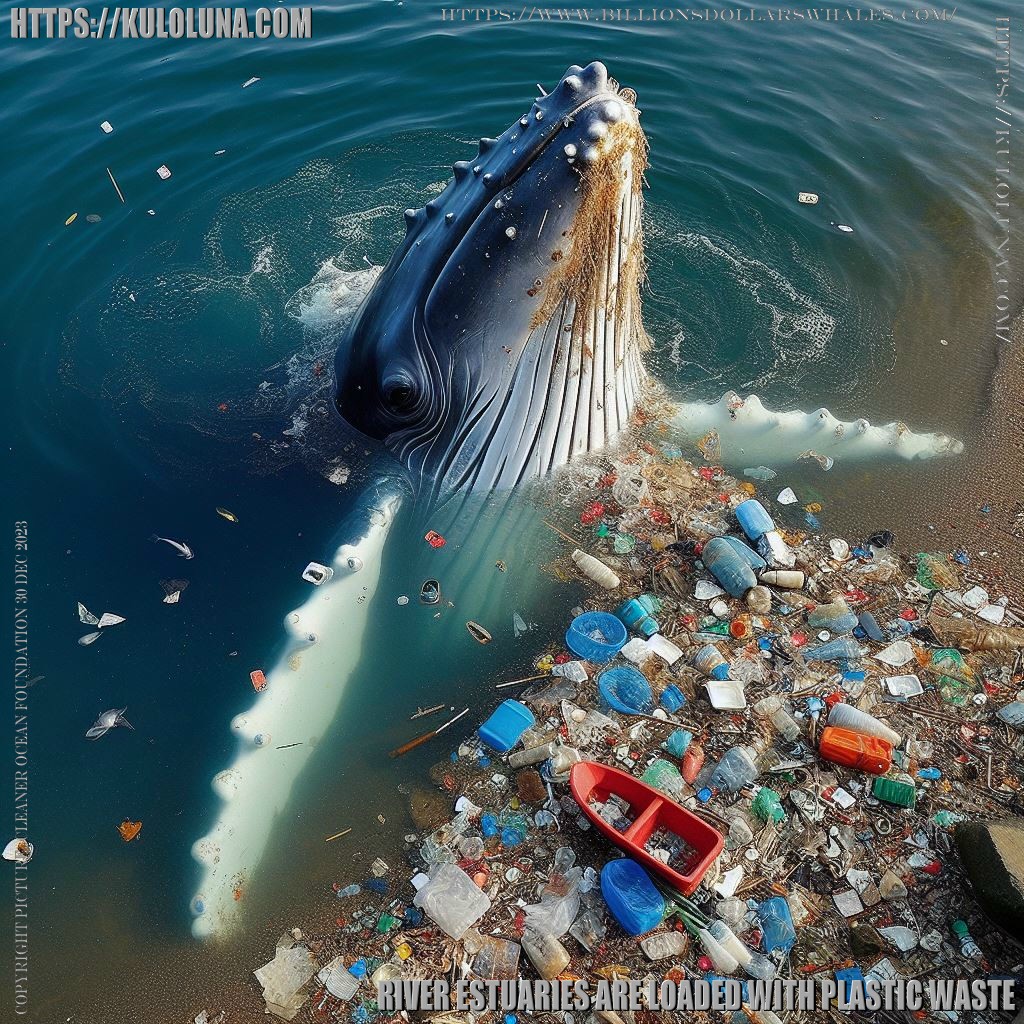
Ocean plastic has turned up literally everywhere. It has been found in the deep sea and buried in
Arctic ice. It has been ingested with dire consequences by some 700 species of marine wildlife.
The pioneering study also creates a new mystery. Because the gap between what is found floating and what flows into the ocean is so large, scientists now have to figure out where else it collects and in what amounts.
"What we need to do now is close the gap," Richard Thompson, a marine biologist at the U.K.'s
Plymouth
University.
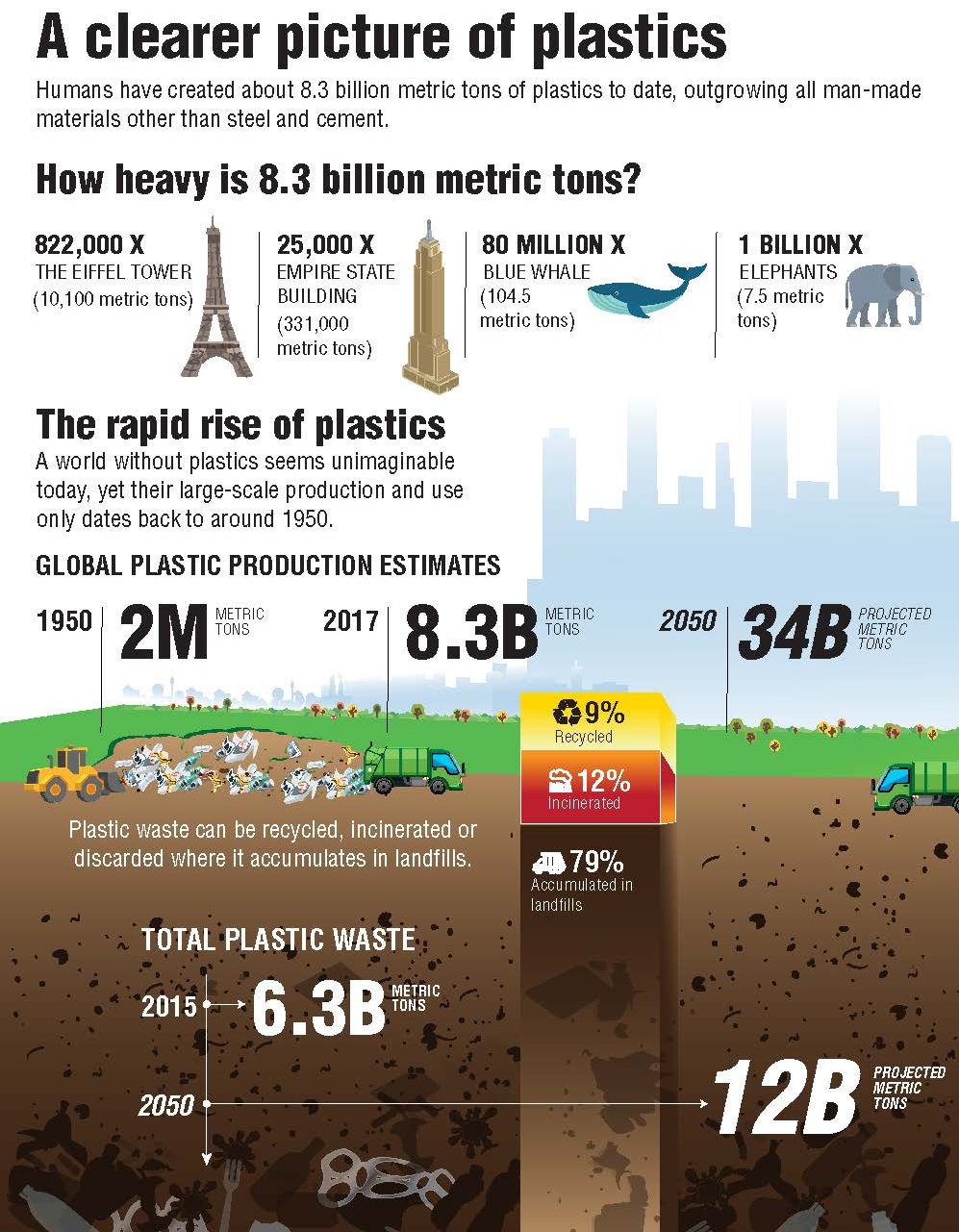
8
BILLION TONS
- A
superb infographic from Janet A Beckley, University of Georgia
DAILY MAIL FEBRUARY 2015
Eight million tons of plastic is dumped at sea each year...that's five whole bags-full for every foot of the world's coastline
- China topped the league, accounting for up to 3.5 million tons a year
- Other main offenders are Indonesia, Philippines,
Vietnam and Sri Lanka
- United States contributes just 77,000 tons, which is less than 1%
So much plastic is dumped into the sea each year that it would fill five carrier bags for every foot of coastline on the planet, scientists have warned.
Around 8million tons of plastic bottles, bags, toys and other plastic rubbish ends up in the world’s oceans each year.
The ‘staggering’ total is much higher than previous estimates – and enough to leave an area around 25 times the size of Manchester ankle-deep in plastic waste.
Because of the difficulties in working out the exact amount, since much of it may have sunk, the scientists said the true figure could be as much as 12.7million tons polluting the ocean each year.
Dr Jenna Jambeck, one of the researchers from the University of Georgia in the US, said we are becoming ‘overwhelmed by our waste’.
The team also warned that this ‘ocean of plastic’ can harm sea life.
Turtles can mistake plastic bags for jellyfish and eat them. The bags then block their stomachs, which causes them to starve to death.
Sea birds also often mistake floating plastic for food; over 90 per cent of fulmars found dead around the
North Sea have plastic in their stomachs. It is also feared that it could harm our health to eat
fish that have consumed plastic.
The scientists reached their figures by analysing data on the amount of waste generated and how well it is disposed of in 192 coastal countries.
This included litter left on beaches as well as plastic from fly-tipping and badly-managed rubbish dumps.
Their figures are much higher than those from previous studies, which only looked at rubbish floating on the surface and did not factor in the plastic that had sunk to the sea floor or was trapped in ice.
They estimated that between 4.7million and 12.7million tons of plastic made its way into the world’s oceans in 2010, with a best estimate of 8million tons.
The figure is expected to rise each year. Between 2010 and 2025, some 155million tons of plastic could be dumped into the ocean – enough to fill 100 bags per foot of coastline.
Piled one on top of the other, the bags would create a wall of rubbish 100ft high.
China topped the league of plastic polluters, accounting for up to 3.5million tons a year, or almost a quarter of the total, the American Association for Advancement of Science’s annual conference in San Jose, California, heard.
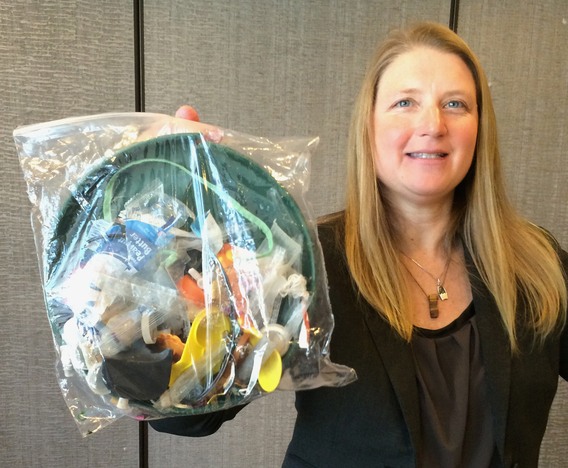
SAMPLED
-
Dr Jenna Jambeck conducted a study of dozens or rivers,
widely reported in 2015, University of Georgia.
Writing in the journal Science, Dr Jambeck said that while the UK isn’t among the worst polluters, we cannot be complacent, adding that global action is needed to tackle the problem.
Co-author Roland Geyer, associate professor of industrial ecology at the University of California, Santa Barbara, said: ‘Large-scale removal of plastic marine debris is not going to be cost-effective and quite likely simply unfeasible.
‘This means we need to prevent plastic from entering the oceans in the first place through better waste management, more reuse and recycling, better product design and material substitution.’
Co-author Roland Geyer, associate professor of industrial ecology at the University of California, Santa Barbara, said: ‘Large-scale removal of plastic marine debris is not going to be cost-effective and quite likely simply unfeasible.
‘This means we need to prevent plastic from entering the oceans in the first place through better waste management, more reuse and recycling, better product design and material substitution.’
Frank Davis, director of the National Centre for Ecological Analysis and Synthesis in the US, said: ‘The numbers are staggering but the problem is not insurmountable.’
The Daily Mail has been campaigning for seven years for tougher action to reduce plastic bag waste. A major victory came in June last year when a 5p charge for plastic bags was announced in England.
The charge, which will be introduced by October, is expected to reduce bag use by up to 80 per cent and raise up to £100million a year for good causes.
Around eight billion bags are currently handed out in England each year – or 150 per person.
Campaigners say the carrier bags can take up to 1,000 years to degrade – but are used on average for just 20 minutes.
By Fiona Macrae In San Jose
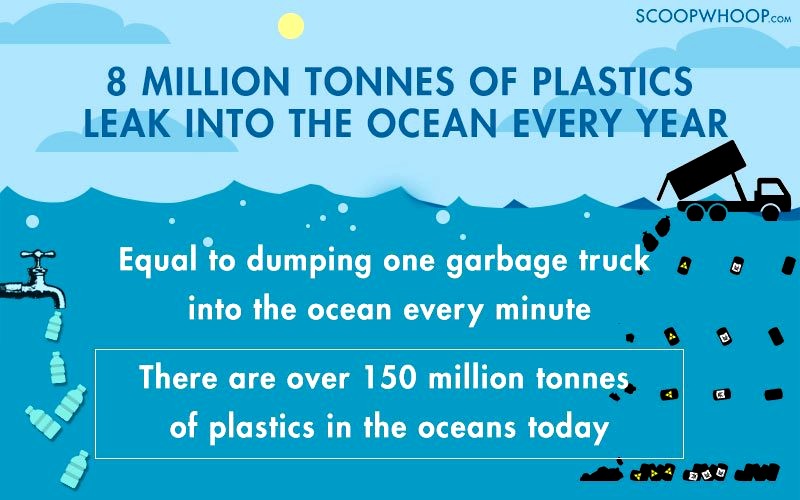
SCOOPWHOOP FEBRUARY 2016
- In Just 35 Years, Oceans Will Contain More Plastic Than Fish.
Oceans will have more plastics than fish by 2050 if the ongoing practice of dumping plastics continues, a
World Economic Forum (WEF) report states.
In the report, the World Economic Forum (WEF) has said every year at least 8 million tonnes of plastics leak into the ocean, which is equivalent to dumping the contents of one garbage truck into the ocean every minute.
"If no action is taken, this is expected to increase to two per minute by 2030 and four per minute by 2050," it noted.
THE
FIVE Rs
Refuse, Reduce, Reuse, Recycle, and Repair
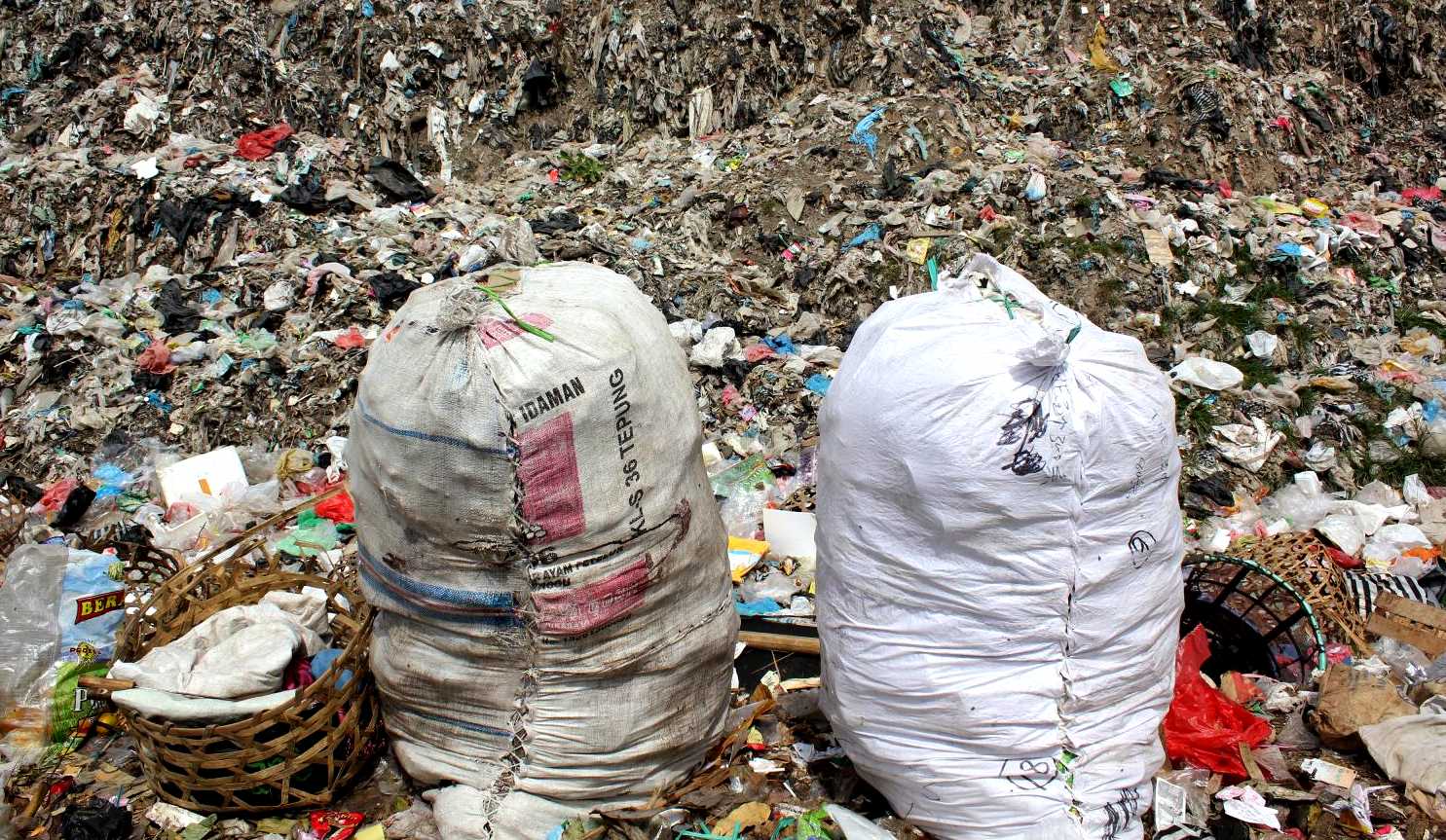
LINKS
& REFERENCE
https://www.newsweek.com/2015/03/06/8-million-tons-trash-added-ocean-land-each-year-306456.html
https://www.vox.com/2015/2/12/8028267/plastic-garbage-patch-oceans
https://www.dailymail.co.uk/sciencetech/article-2951256/Study-World-dumps-8-8-million-tons-plastics-oceans.html
https://phys.org/news/2017-07-billion-metric-tons-scientists-total.html
http://galileowatermark.com/ocn/
https://www.scoopwhoop.com/Oceans-Will-Have-More-Plastics-Than-Fish-By-2050/
https://www.nationalgeographic.com/news/2015/2/150212-ocean-debris-plastic-garbage-patches-science/
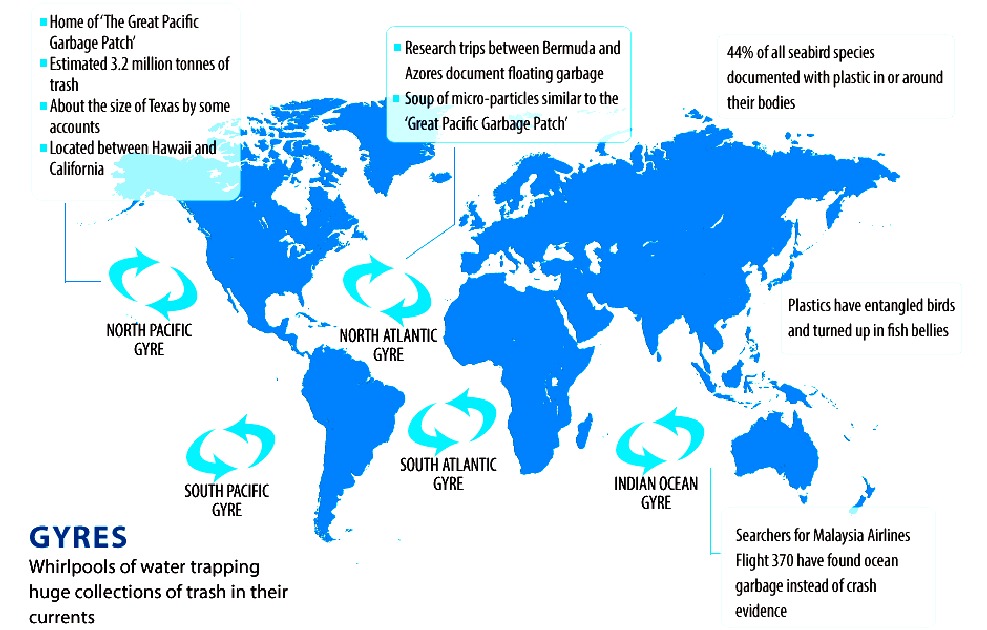
BUILD
UP
-
Plastic has accumulated in five ocean hot spots called gyres, see here in this world map derived from information
published by 5 Gyres. All that plastic just floating around is a huge waste of resources in a sustainable sense, where we should be aiming for
a circular economy.
PLEASE
USE OUR A-Z INDEX
TO NAVIGATE
THIS SITE
ABS
- BIOMAGNIFICATION
- CANCER
- CARRIER
BAGS - COTTON
BUDS - DDT
- FISHING
NETS - HEAVY
METALS - MARINE
LITTER - MICROBEADS
MICRO
PLASTICS - NYLON
- OCEAN
GYRES - OCEAN
WASTE - PACKAGING
- PCBS
- PET
- PETROLEUM
- PLASTIC
- PLASTICS
- POLYCARBONATE
POLYOLEFINS
- POLYPROPYLENE
- POLYSTYRENE
- POLYTHENE - POPS
-
PVC - SHOES
- SINGLE
USE - SOUP
- STRAWS
- WATER
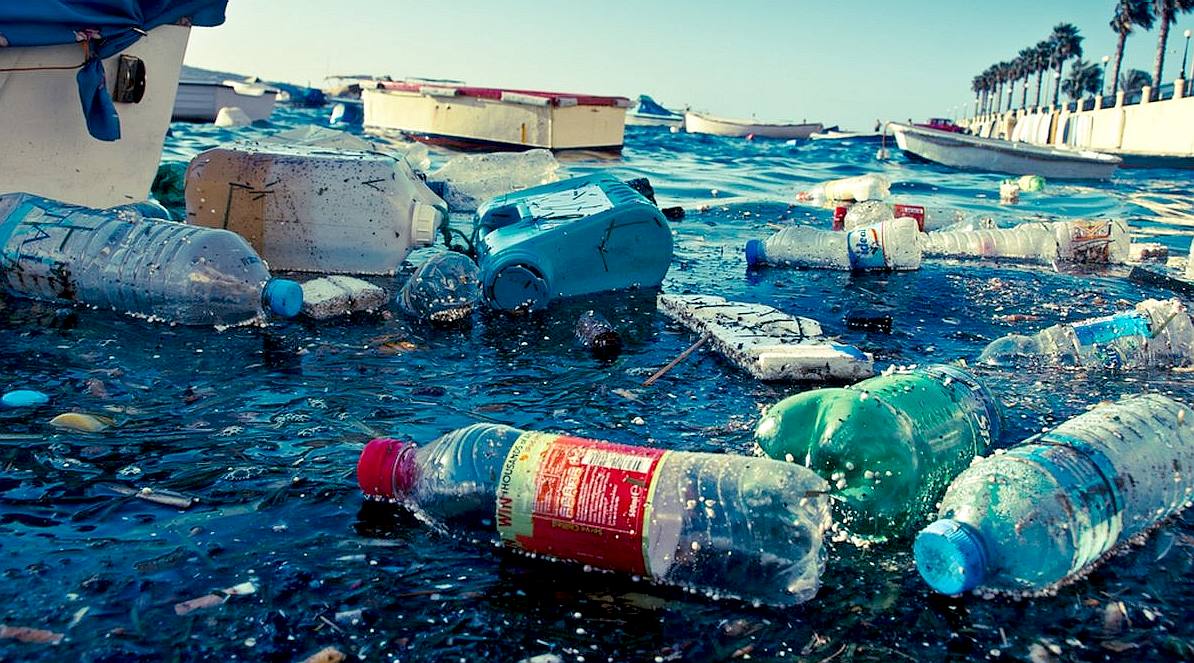
This website is
provided on a free basis as a public information service. copyright © Cleaner
Oceans Foundation Ltd (COFL) (Company
No: 4674774) 2024.
Solar
Studios, BN271RF, United Kingdom.
COFL is
a company without share capital.
|









